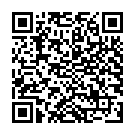|
|
|
| Module code: MST2.MIC |
|
|
2V+2P (4 hours per week) |
|
5 |
| Semester: 5 |
| Mandatory course: yes |
Language of instruction:
German |
Assessment:
Exam
[updated 05.06.2025]
|
MST2.MIC (P231-0061) Mechatronics and Sensor Technology, Bachelor, ASPO 01.10.2019
, semester 5, mandatory course
MST2.MIC (P231-0061) Mechatronics and Sensor Technology, Bachelor, ASPO 01.10.2020
, semester 5, mandatory course
|
60 class hours (= 45 clock hours) over a 15-week period.
The total student study time is 150 hours (equivalent to 5 ECTS credits).
There are therefore 105 hours available for class preparation and follow-up work and exam preparation.
|
Recommended prerequisites (modules):
None.
|
Recommended as prerequisite for:
MST.SPS Fundamentals of Programmable Logic Control
MST2.MCS Microcontroller Systems
MST2.SMS
[updated 10.11.2020]
|
Module coordinator:
Prof. Dr.-Ing. Jürgen Schäfer |
Lecturer:
Dipl.-Ing. Hans-Joachim Bohr
[updated 10.11.2020]
|
Learning outcomes:
After successfully completing this part of the module, students will understand the structure and operation of a microcontroller and its peripheral components. They will be able to create and debug simple, hardware-oriented programs in assembler and the high-level language C. They will be able to explain the hardware and software in detail with regard to their interaction using examples.
The practical course will allow students to apply and further deepen their knowledge.
[updated 05.06.2025]
|
Module content:
1. Introduction
1.1 RISC architectures
1.2 ARM architectures
2. The ARM Cortex-M0+ processor family
2.1 The typical structure of a microcontroller
2.2 Features of the Cortex-M0+
2.3 Structure of a Cortex-M0+ processor
2.4 ARM AMBA bus systems
2.5 Pipelining in the Cortex-M0+
2.6 Thumb Instruction Set Architecture
2.7 Example: µController STM32L011K4
3. Microcontroller basics
3.1 Supply voltage and logic level
3.2 System clock and peripheral clock
3.3 Reset and power-on reset
3.4 The booting process
4. The ARMv6-M architecture:
4.1 Operating modes and operating states
4.2 Registers, special registers, and status registers
4.3 Storage, program memory und data memory
4.4 Stack memory, stack pointers, and stack operations
4.5 Exceptions and interrupts
5. The command set architecture
5.1 Addressing modes
5.2 Types of commands
5.3 Command overview
6. Assembler programming
6.1 The structure of Assembler programs
6.2 Pseudo and control structures
6.3 Using subroutines
6.4 Using tables
6.5 Examples
7. Some peripheral components of the µController ST32L011K4
7.1 Memory Mapped IO
7.2 RCC – Reset and Clock Control
7.3 GPIO – Universal in and output
7.4 NVIC – Nested-Vectored-Interrupt-Controller
7.5 EXTI – Extended-Interrupt and Event-Controller
7.6 GPT – General Purpose Timer
7.7 ADC – Analog-Digital-Converter
7.8 USART / I2C – Serial data transmission
8. The Cortex-M0 experiment board
9. The C compiler for ARM Cortex-M0+ processors
[updated 05.06.2025]
|
Teaching methods/Media:
Lecture, exercise, practical course / PowerPoint transparencies, blackboard
[updated 05.06.2025]
|
Recommended or required reading:
Yiu, J.: Definitive Guide to the ARM Cortex-M0 and Cortex-M0+ Processors, Newnes
STMicroelectronics, Handbücher und Datenblätter:
- STM32L011x3 STM32L011x4 - Datenblatt zum Prozessor STM32L011K4
- UM1956 User manual, STM32 Nucleo-32 boards (MB1180)
- PM0223 Programming manual, Cortex®-M0+ programming manual for STM32L0
- RM0377 Reference manual, Ultra-low-power STM32L0x1 Arm-based 32-bit MCUs
ARM: ARMv6-M Architecture Reference Manual
[updated 05.06.2025]
|


